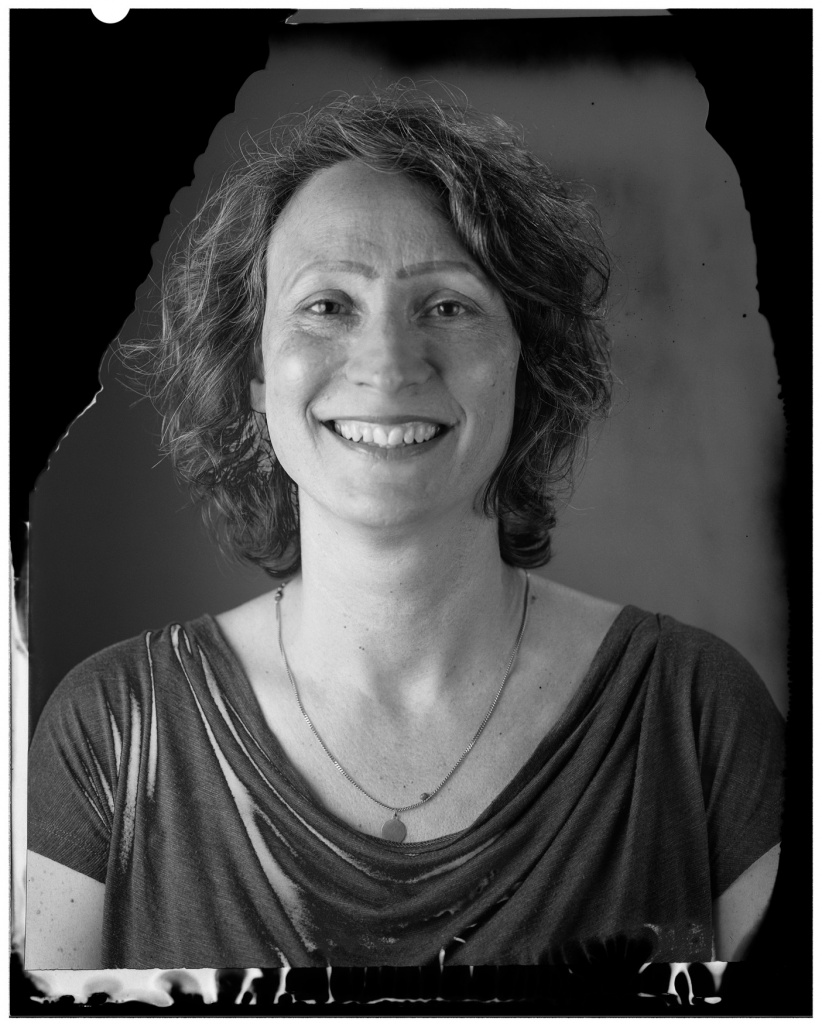I am currently the first Head of the German Lost Art Foundation’s Department for Cultural Goods from Colonial Contexts, which was created in 2019.
As member of CARMAH’s ‘Transforming the Ethnographic’ project I looked at the history and future of ethnographic museums, in particular from a postcolonial perspective. Most of my work within the field of museum and heritage studies has revolved around the nexus between colonialism and the genesis of European museum collections. My postdoctoral research project was about the return of human remains from European museum collections to their countries/communities of origin, in particular from Germany to Namibia and Australia. The project was based on my earlier work on the memory of colonialism in Namibia (my PhD, entitled ‘Postkoloniale Erinnerungslandschaften. Wie Deutsche und Herero des Kriegs von 1904 gedenken’). In my book ‘Haut, Haar und Knochen. Kolonialen Spuren in naturkundlichen Sammlungen der Universität Jena’ (2016, co-authored with Holger Stoecker), I reflect upon the possibilities and limitations of provenance research in university collections. My co-edited volume ‘Provenienzforschung zu ethnografischen Sammlungen der Kolonialzeit. Positionen in der aktuellen Debatte’ (2018) explores the preconditions, possibilities and perspective of provenance research in ethnographic collections. My most recent co-edited volume ‘Museumsethnologie: Eine Einführung. Theorien – Debatten – Praktiken’ (2019, with Iris Edenheiser) focuses on the history, theories and practices connected to ethnographic collections and ethnological museums in Germany while reflecting on international developments and debates in the field.
I have also co-curated major exhibitions at the intersection of cultural/social anthropology, history and contemporary art (‘Namibia – Deutschland: eine geteilte Geschichte. Widerstand, Gewalt, Erinnerung‘, Rautenstrauch-Joest-Museum Köln 2004/Deutsches Historische Museum 2005; „Afropolis. City, Media, Art“, Rautenstrauch-Joest-Museum 2010/Iwalewa-Haus Bayreuth 2011). I was the speaker of the Working Group on Museums of the Deutsche Gesellschaft für Völkerkunde e.V. (together with Iris Edenheiser), which organised the conference ‚Provenienzforschung in ethnologischen Sammlungen der Kolonialzeit‘ (München, 7./8.4.2017, on which my co-edited volume of 2018 is based).
The blog ‚Wie Weiter mit Humboldts Erbe?’ that I co-edit with colleagues from various universities in Germany, in particular from the University of Cologne/Global South Studies Centre aims to encourage colleagues from anthropology and other disciplines to engage in a discussion on the future of ethnographic collections.
Publications (selection)
Monographs
2016 (mit Holger Stoecker) Haut, Haar und Knochen. Koloniale Spuren in naturkundlichen Sammlungen der Universität Jena. Weimar: VDG
2010 Erinnerungslandschaften im kolonialen und postkolonialen Namibia. Wie Deutsche und Herero in Namibia des Kriegs von 1904 gedenken. Frankfurt: Campus
Edited Volumes
2019 (with Iris Edenheiser, eds.) Museumsethnologie: Eine Einführung. Theorien – Debatten – Praktiken. Berlin: Reimer
2018 (with Iris Edenheiser, Sarah Fründt and Heike Hartmann, eds.) Provenienzforschung zu ethnologischen Sammlungen der Kolonialzeit, available at: edoc.hu-berlin.de/provenienzforschung
2015 GraffiCity. Materialized Visual Practices in the Public Urban Space. Tagungsband des Internationalen Kollegs Morphomata. München: Wilhelm Fink (mit Eva Youkhana)
2014 Transforming Knowledge Orders: Museums, Collections, Exhibitions. Reihe Morphomata, Band 16. München: Wilhelm Fink
2012 Afropolis. City, Media, Art. Johannesburg: Jacana (mit Kerstin Pinther und Christian Hanussek)
2004 Namibia – Deutschland: eine geteilte Geschichte. Widerstand, Gewalt, Erinnerung. Publikation zur gleichnamigen Ausstellung im Rautenstrauch-Joest-Museum für Völkerkunde der Stadt Köln, 7.3.-3.10.2004. Ethnologica Neue Folge, Band 24. Berlin: Minerva (mit Dag Henrichsen und Michael Bollig)
Book Chapters and Journal Articles
2020 ›The Face of Genocide‹: Returning human remains from German institutions to Namibia. In: Fforde, Cressida; Keeler, Honour; McKeown, Timothy (eds.): The Routledge Companion to Indigenous Repatriation: Return, Reconcile, Renew. London: Routledge
2018 (with Sarah Fründt) Menschliche Überreste in deutschen Institutionen. Historische Entwicklungen und zukünftige Perspektiven. In: Zeller, Joachim; Bechhaus-Gerst, Marianne (eds.): Deutschland postkolonial? Die Gegenwart der imperialen Vergangenheit. Berlin: Metropol-Verlag
2018 (with Dag Henrichsen, Holger Stoecker and Hans Axasi #Eichab) Re-individualising human remains from Namibia. Colonialism, grave robbery and intellectual history. In: Human Remains and Violence 4/2: 45-66.
2018 (with Friedrich von Bose) Discussing Ethnological Museums: The Epistemology of Postcolonial Debates, in: Schorch, Philipp; McCarthy, Conal (eds.): Curatopia: Museums and the Future of Curatorship. Manchester University Press
2018 The Long Way Home. Zur Biografie zurückgegebener Objekte/Subjekte. In: Greub, Thierry; Roussel, Martin (eds.): Portrait. Festschrift für Dietrich Boschung. Paderborn
2018 (with Iris Edenheiser and Sarah Fründt) Eine Tagung zu postkolonialer Provenienzforschung. Zur Einführung. In: Larissa Förster, Iris Edenheiser, Sarah Fründt and Heike Hartmann (eds.): Provenienzforschung zu ethnologischen Sammlungen der Kolonialzeit. Berlin: Humboldt Universität, pp. 13-36. Free download at: http://dx.doi.org/10.18452/19073
2018 Die Institutionalisierung und Vernetzung von Provenienzforschung zu unterschiedlihen historischen Kontexten, in: Larissa Förster, Iris Edenheiser, Sarah Fründt and Heike Hartmann (eds.): Provenienzforschung zu ethnologischen Sammlungen der Kolonialzeit, Berlin: Humboldt Universität, pp. 278-286. Free download at: http://dx.doi.org/10.18452/19049
2018 Sensible Objekte interdisziplinär betrachtet. Eine Diskussion mit Wiebke Ahrndt, Larissa Förster, Ute Haug, Michael Schmitz and Günther Wessel, in: Brandstetter, Anna-Maria; Hierholzer, Vera (eds.): Nicht nur Raubkunst! Sensible Dinge in Museen und Sammlungen. Mainz University Press, S. 293-318. Free download at: http://www.v-r.de/de/nicht_nur_raubkunst/t-0/1097499
2016 Plea for a more systematic, comparative, international and long-term approach to restitution, provenance research and the historiography of collections. In: Museumskunde, Band 81, S. 49-54
2016 Problematische Provenienzen. Museale und universitäre Sammlungen aus postkolonialer Perspektive. In: Deutsches Historisches Museum (Hg.): Deutscher Kolonialismus. Fragmente seiner Geschichte und Gegenwart. Berlin, S. 154-161
2016 Raubkunst, sensible Objekte und Sammlungen und (post-)koloniale Provenienzforschung in (ethnologischen) Museen und Sammlungen: Debatten, Projekte, Perspektiven. In: Schulze, Sabine; Reuther, Silke (Hg.): Raubkunst? Silber aus ehemals jüdischem Besitz – wie gehen Museen damit um? Tagungsband zum Symposium anlässlich der Ausstellung „Raubkunst? Provenienzforschung zu den Sammlungen des Museums für Kunst und Gewerbe Hamburg. Hamburg, S. 42-45.
2015 Surrendering Interpretive Privilege. The Lab in Discourse. Conversation with Irene Albers, Viola König and Klaas Ruitenbeek. In: Heller, Martin (Hg.): Prinzip Labor. Museumsexperimente im Humboldt Lab Dahlem. Berlin: nicolai, pp. 35-44
2015 (with Friedrich von Bose co-editor of a debate between 5 scholars/artists) Jenseits der Institution: Für eine erweiterte Diskussion ethnologischer Museumspraxis. In: Zeitschrift für Kulturwissenschaften, Heft 5, S. 95-122
2013 Öffentliche Kulturinstitution, internationale Forschungsstätte und postkoloniale Kontaktzone. Was ist ethno am ethnologischen Museum? In: Bierschenk, Thomas; Krings, Matthias; Lentz, Carola (Hg.): Perspektivwechsel. Ethnologie im 21. Jahrhundert. Berlin: Reimer, S. 189-210
2013 ›You are giving us the skulls – where is the flesh?‹ Die Rückkehr der namibischen Human Remains. In: Stoecker, Holger; Schnalke, Thomas; Winkelmann, Andreas (Hg.): Sammeln, Erforschen, Zurückgeben? Menschliche Gebeine aus der Kolonialzeit in akademischen und musealen Sammlungen. Berlin: Chr. Links, S. 419-446
2013 Objekte aus deutschen Kolonien im Kölner Rautenstrauch-Joest-Museum. In: Bechhaus-Gerst, Marianne; Horstmann, Anne-Kathrin (Hg.): Köln und der deutsche Kolonialismus. Eine Spurensuche. Köln: Böhlau, S. 229-236
2013 Sammlungsgeschichte. In: ARGE schnittpunkt (Hg.): Handbuch Ausstellungstheorie und -praxis. Frankfurt: UTB, S. 185-186
2013 Source communities. In: ARGE schnittpunkt (Hg.): Handbuch Ausstellungstheorie und -praxis. Frankfurt: UTB, S. 189
2011 »These skulls are not enough«. In: de Seynes, Elsa; Kuster, Brigitta; Schmidt, Dierk (Hg.): Afterlifes: German and European Postcoloniality. Artefacts. Museums. Themenausgabe von Darkmatter. In the Ruins of Imperial Culture.
2010 Nichts gewagt, nichts gewonnen. Die Ausstellung »Anders zur Welt kommen« und das Berliner Humboldt-Forum. In: Paideuma. Zeitschrift für Kulturkunde. Band 56, S.241-261
2008 From General Field Marshal to Miss Genocide. The reworking of traumatic experiences among Herero-speaking Namibians. In: Journal for Material Culture, Jg.13, Bd. 2, S.189-208
2008 The future of ethnographic collecting: to what end should or could we still collect and preserve items of other peoples’ material culture? Proceedings of the Expert Meeting »Museums, Society and Development«, held 15-17 May 2008 at the Tropenmuseum Amsterdam. Amsterdam: KIT Publishers, S.18-28
Interviews
Invited Talks (selection)
2018
Restitution, Repatriation, Reconciliation – What is at stake? Konferenz “Sensitive Heritage. Ethnographic Museums and Material/Immaterial Restitutions”. GRASSI Museum für Völkerkunde zu Leipzig, 12./13.12.
Die Empfehlungen des Deutschen Museumsbundes zum Umgang mit menschlichen Überresten (2013): Kritik aus der Perspektive der Rückfordernden. Workshop »Umgang. Menschliche Überreste in Museen und Universitätssammlungen«, Hochschule für Bildende Künste, Dresden, 4.5.2018.
2017
(mit Heike Hartmann) German Colonialism. Fragments Past and Present. RCMC Annual Conference ‘Reckoning with History: Colonial Pasts, Museum Futures, and Doing Justice in the Present’, Museum Volkenkunde, Leiden, the Netherlands
Haut, Haar und Knochen. Koloniale Spuren in den naturkundlichen Sammlungen der Universität Jena (mit Holger Stoecker). Kolloquium des Instituts für Ethnologie und Afrikastudien der Universität Mainz (23.5.)
Die ethnographischen Museen schwollen an wie trächtige Flusspferde” (L. Frobenius). Museen und Kolonialismus. Vortrag im Begleitprogramm der Ausstellung “Deutscher Kolonialismus. Fragmente in Geschichte und Gegenwart” am Deutschen Historischen Museum, Berlin (22.2.2017)
Haut, Haar und Knochen. Koloniale Spuren in naturkundlichen Sammlungen der Universität Jena. Vortrag im Zeitgeschichtlichen Kolloquium des Jena Center Geschichte des 20. Jahrhunderts (25.1.)
2016
The face of genocide. Returning human remains from German institutions to Namibia. Paper at the World Archeological Congress, Kyoto (2.9.)
(Post-)koloniale Provenienzforschung. Herausforderung und Chancen. Presentation at the annual conference of Jahrestagung der Gesellschaft für Universitätssammlungen, Hamburg (22.7.)
Raubkunst, sensible Sammlungen und koloniale Provenienzforschung in (ethnologischen) Sammlungen: Debatten, Programme, Perspektiven. Paper at the conference »Raubkunst. Silber aus ehemals jüdischem Besitz – Wie gehen Museen damit um?«, Museum für Kunst und Gewerbe Hamburg (4./5.2.)
Museums- und Universitätssammlungen historisch erforschen: ein Beispiel aus dem Bereich (post-)kolonialer Provenienzforschung zu Jena und Namibia. Historisches Seminar, Universität zu Köln (11.1.), sowie Historisches Seminar, Universität Göttingen (7.6.)
Jacobus Hendrick: eine Spurensuche in namibischer Alltags-, deutscher Kolonial- und Berliner Wissenschaftsgeschichte«. Berliner Gesellschaft für Ethnologie, Anthropologie und Urgeschichte (29.2., with Dag Henrichsen und Holger Stoecker)
Networks and Memberships
Member of the working group of the German Museum Association that has drafted a “Leitfaden für den Umgang mit Sammlungsgut aus kolonialen Kontexten”
Since 2011 speaker of the Working Group on Museums of the German Association of Anthropology (with Dr. Iris Edenheiser, Reiss-Engelhorn-Museen Mannheim)
Member of the German-Australian Research Network on Human Remains / member of the “Africa Accessioned” network of the Museums Association of Namibia
Member or ICOM, VAD and DGSKA

